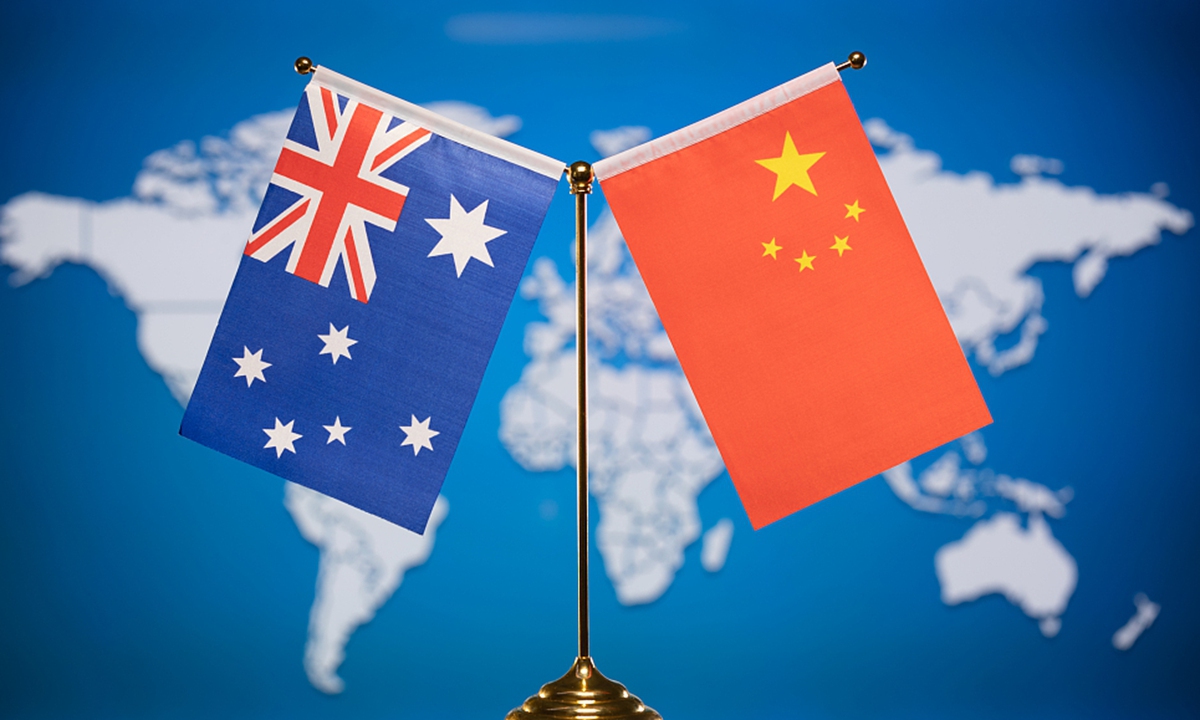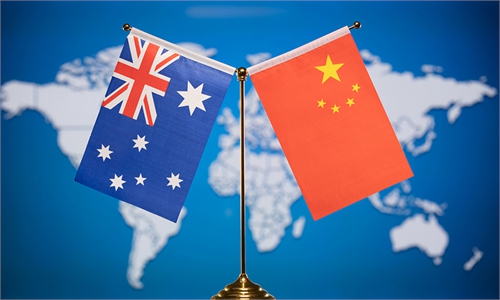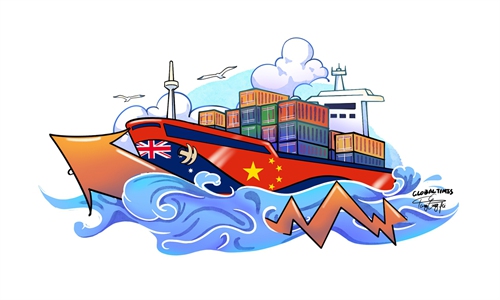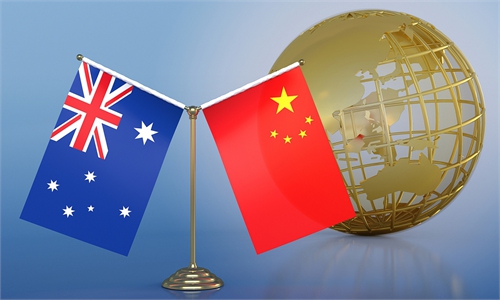
China-Australia Photo: VCG
Despite the increasing positive signs for the thawing of China-Australia economic and trade relations, whether bilateral trade is really heading toward "a warm spring" is still up to whether Canberra can find a pragmatic point in balancing its economic and political imperatives. The further improvement of bilateral relations requires Australia's realization that China is Australia's partner and did not and will not pose a security threat to Australia.Australian Trade Minister Don Farrell started his trip to China on Thursday, where he will meet with Chinese Commerce Minister Wang Wentao. Ahead of the visit, Farrell said in a statement that he would "progress the resolution of outstanding trade impediments" and "be advocating strongly for the full resumption of unimpeded Australian exports to China," Bloomberg reported.
The first visit by an Australian trade minister to China since November 2019 marks another important step in bringing bilateral economic and trade ties back to track, which is also one of the positive signs of warming trade relations between the two countries in recent days. Yet, these encouraging developments still face the challenge as to whether the two sides have enough political mutual trust to sustain this rising trade momentum.
Since bilateral economic and trade relations have been seriously disrupted by Australia's political hostility over the past few years, it is crucial for both countries to take more concrete actions to restore mutual trust for further recovery of the bilateral trade and economic relationship. Under the current circumstances, bilateral trade ties may have walked out of the lowest point, but Canberra's continuing rationality toward Beijing is still essential to inject more positive factors into the warming progress.
Canberra needs to realize that the future of its trade ties with China will be promising only when both sides can strengthen cooperation under the precondition of respecting each other's core interests.
It is true that since the beginning of this year, signs of warming ties between China and Australia continued to surface, setting the stage for substantial improvement in bilateral trade. According to the latest data from the Chinese Customs, in the first four months of this year, bilateral trade between the two countries reached 539.83 billion yuan ($77.81 billion), up 21.4 percent compared with the same period last year, reversing the trade decline recorded in 2022. In particular, Australian exports to China jumped 22.5 percent year-on-year in the January-April period.
In April, Australia said it would suspend a case at the WTO over China's tariffs on barley, as both countries reached an agreement on resolving their dispute on their own.
Moreover, the Australian government forecast the nation's first annual budget surplus in 15 years, thanks in part to the Chinese economy picking up more quickly than expected over the past six months, Australian Treasurer Jim Chalmers said on Sunday.
All these point to the need to strengthen cooperation with China, its largest trading partner, which is absolutely beneficial to the Australian economy, especially at a time when the global economy is facing the risk of a slowdown.
There is no fundamental conflict of interest between China and Australia. China is not a potential rival to Australia. In the past few decades, China's peaceful development has created many opportunities and dividends for Australia.
However, while it is welcome to see a warming of economic and trade relations between China and Australia, it should be noted that in terms of the political, military and security areas, Australia is still dependent on and even sticks to serving the US strategy of containing China, which constitutes a lingering concern hindering the development of China-Australia relations.
China has no interest in changing Australia's foreign policy, which views the US as its closest ally. But its following of the US to see China as a security threat and crack down on China is not what we can turn a blind eye to. This is the root cause why China-Australia relations encountered difficulties. For example, Australia has actively involved itself in the US-led nuclear submarine deal under AUKUS, which is widely seen as a military plan to contain and provoke confrontations with China.
But how could Australia play the dual role as China's close economic friend and strategic security enemy at the same time? Failure to find a balance point on the issue will make it impossible for Australia to treat bilateral trade relations in a pragmatic approach.



